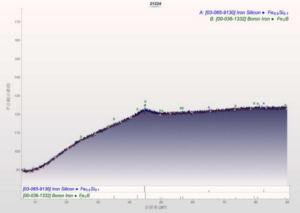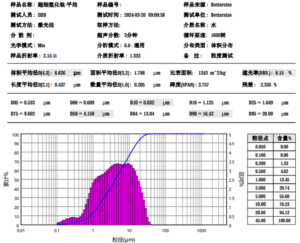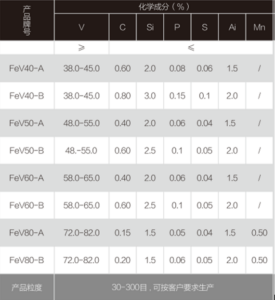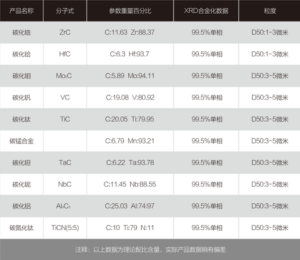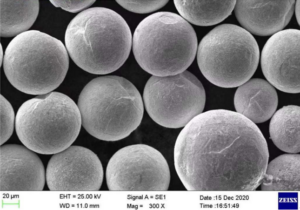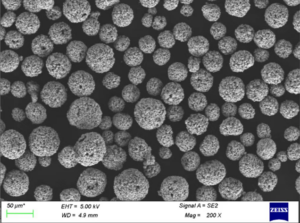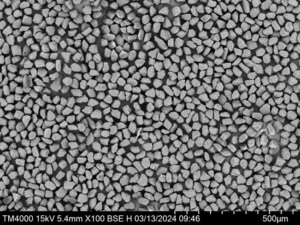Table of Contents
ToggleIron chromium molybdenum powder, also known as FeCrMo powder, is an alloy powder used in various applications due to its properties. This guide provides an overview of FeCrMo powder, its composition, characteristics, manufacturing process, applications, and suppliers.
Overview of Iron Chromium Molybdenum Powder
Iron chromium molybdenum powder is composed of iron, chromium, and molybdenum. It is manufactured by atomizing an ingot or prealloyed melt of iron, chromium, and molybdenum.
The typical composition of FeCrMo powder is:
- Iron (Fe): 50-55%
- Chromium (Cr): 20-30%
- Molybdenum (Mo): 1-5%
Key properties and characteristics of FeCrMo powder:
- High hardness and strength
- Excellent corrosion resistance
- Good wear resistance
- High temperature stability
- Controlled expansivity
- Tailorable composition
With its unique properties, FeCrMo powder is suitable for applications like wear-resistant coatings, corrosion resistant coatings, brazing, additive manufacturing, and surface engineering.
Manufacturing Process
FeCrMo powder is manufactured through gas or water atomization process.
Gas Atomization:
- An ingot of FeCrMo alloy is induction melted under inert atmosphere
- The molten metal stream is disintegrated by high pressure inert gas jets into fine droplets
- The droplets rapidly solidify into powder
- Particle size distribution is controlled by gas flow rate, melt superheat temperature, and nozzle design
Water Atomization:
- Similar to gas atomization, but uses water jets instead of gas
- Produces coarse powder particles compared to gas atomization
- Lower capital and operating costs
The powder undergoes secondary processing like sieving, deoxidation, and mixing to achieve the desired powder characteristics. The particle shape, size distribution, flowability, and microstructure are controlled to customize the powder morphology and properties.
Types of FeCrMo Powder
FeCrMo powder is available in various compositions with differing amounts of iron, chromium, and molybdenum.
Common types:
- FeCrMo-1: Iron-50%, Chromium-27%, Molybdenum-1%
- FeCrMo-2: Iron-55%, Chromium-22%, Molybdenum-2%
- FeCrMo-3: Iron-52%, Chromium-25%, Molybdenum-3%
Custom formulations are also produced based on application requirements.
The powder can be supplied in various size ranges:
- Coarse powder >150 μm
- Fine powder 45-150 μm
- Ultrafine powder <45 μm
Special grades include homogeneous powder, spherical powder, and low-oxygen powder.

Applications of FeCrMo Powder
FeCrMo powder is used in diverse applications harnessing its properties:
Wear resistant coatings: Provides excellent abrasion and erosion resistance for components subjected to wear like extrusion screws, landing gear, pump impellers. Applied via thermal spray or laser cladding.
Corrosion resistant coatings: Used in corrosive environments like chemical plants, marine applications. Applied by weld overlay or thermal spray.
Brazing: Used as filler material for brazing stainless steels and nickel alloys. Provides oxidation and corrosion resistance.
Metal injection molding: Blended with binders and injection molded into complex parts with high hardness like aerospace components.
Additive manufacturing: Selective laser melting of FeCrMo powder produces dense parts with superior properties compared to wrought alloys. Used for tooling inserts, prosthetics.
Surface engineering: Applied as a coating on steels and alloys to enhance wear, heat and corrosion resistance via techniques like laser cladding, plasma transferred arc welding and thermal spraying.
Suppliers of FeCrMo Powder
FeCrMo powder is supplied by leading metal powder manufacturers:
| Company | Location |
|---|---|
| Hoganas | Sweden |
| Pometon | Italy |
| AMG Superalloys | USA |
| Sandvik Osprey | UK |
| CNPC Powder Group | China |
Pricing:
- Coarse powder: $15-30 per kg
- Fine powder: $25-50 per kg
- Spherical/custom grades: $50-80 per kg
Minimum order quantities start from 10 kg. Bulk discounts offered for large orders.
Choosing a Reliable Supplier:
- Reputed manufacturer with years of experience
- Offers different compositions and particle size distribution
- Has stringent quality control and inspection processes
- Provides complete analysis certification for each powder lot
- Capable of customizing morphology and properties
- Competitive and transparent pricing
- Timely delivery and responsive customer service
Specifications and Standards
Key specifications for FeCrMo powder:
| Parameter | Typical Values | Standards |
|---|---|---|
| Particle shape | Spherical/irregular | – |
| Particle size | 10-180 μm | ASTM B214 |
| Apparent density | 2-4 g/cc | ASTM B212 |
| Tap density | 3-5 g/cc | ASTM B527 |
| Flow rate | 15-40 s/50g | ASTM B213 |
| Composition | Fe: 50-55%, Cr: 20-30%, Mo: 1-5% | ASTM E350 |
| Oxygen content | <0.6 wt% | – |
| Carbon content | <0.1 wt% | – |
FeCrMo powder composition and properties are verified as per applicable ASTM standards. Customers can request additional testing and quality checks as needed.
Design Considerations
Key aspects to consider during part and process design with FeCrMo powder:
- Composition: Match powder composition to required properties like hardness, corrosion resistance, strength
- Particle size: Depends on processing method and desired finish. Finer powder provides better surface but difficult to handle
- Quality: Minimize impurities like oxygen, nitrogen. Ensure uniformity in size and shape
- Application method: Thermal spray or laser cladding require spherical powder. AM and MIM use fine powder
- Post processing: Additional heat treatment, HIP, machining may be needed to achieve final part properties
- Cost: Balance performance needs with raw material cost. Spherical grades are more expensive
Storage and Handling
To ensure FeCrMo powder quality:
- Store in cool, dry, inert conditions to prevent oxidation and moisture absorption
- Use mild steel or plastic containers instead of paper bags for improved shelf life
- Handle powder in inert atmosphere; avoid contact with oxygen, moisture
- Use glove boxes, vacuum systems for powder handling
- Avoid remnant powder reuse to prevent contamination
- Follow safety precautions – use respiratory protection, minimize dust generation
Maintenance and Repair
For equipment used to process FeCrMo powder:
- Regularly inspect powder handling systems for leaks, clogs, dust accumulation
- Clean equipment routinely to prevent powder contamination
- Lubricate and replace worn components that contact powder
- Verify instrument calibration for flow rate, temperature, pressure
- Perform preventive maintenance on pumps, blowers, valves
- Keep spare parts like seals, gaskets, filters
- Service equipment as per manufacturer recommendations
- Document procedures and maintain logs for each equipment
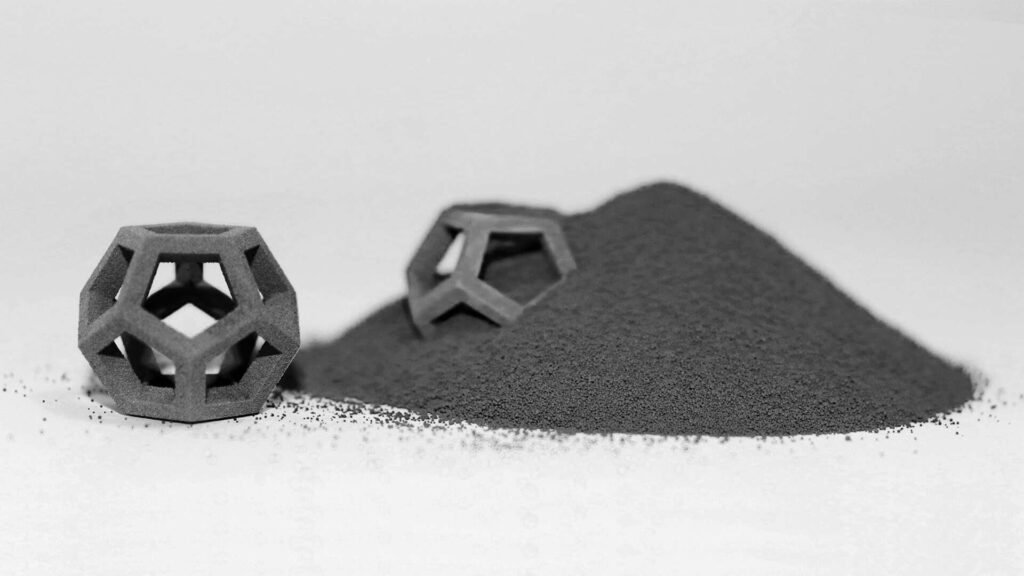
FAQs
Q: What is iron chromium molybdenum powder used for?
A: FeCrMo powder is primarily used for wear resistant and corrosion resistant coatings. It also has applications in brazing, metal injection molding, additive manufacturing, and surface engineering.
Q: How is FeCrMo powder made?
A: It is manufactured via gas atomization or water atomization by melting an ingot of iron-chromium-molybdenum alloy and disintegrating it into fine powder particles.
Q: What is the difference between gas and water atomized FeCrMo powder?
A: Gas atomization produces finer spherical powder while water atomization generates coarser irregular powder. Gas atomized powder has better flowability.
Q: Does FeCrMo powder require sintering?
A: For metal injection molding and additive manufacturing, FeCrMo powder is first sintered to densify the component before additional heat treatment. For thermal spray coatings, no sintering is required.
Q: What particle size is best for thermal spraying with FeCrMo powder?
A: For most thermal spray methods, a particle size range of 45-150 μm is recommended for optimal coating properties. Finer powder is prone to oxidation issues.
Q: What standards apply to FeCrMo powder composition and properties?
A: Key applicable ASTM standards are ASTM B214, B213, B212, B527, and E350 which cover analysis, size characterization, density, flow rate, and chemical composition.
Q: Does FeCrMo powder require special storage?
A: To prevent oxidation and contamination, FeCrMo powder should be stored in inert conditions without moisture. Mild steel or plastic containers are recommended.
Q: How often should powder handling systems be maintained?
A: Regular inspection and preventive maintenance as per manufacturer guidelines is recommended, around every 200-300 hours of operation, to ensure reliable functioning.
